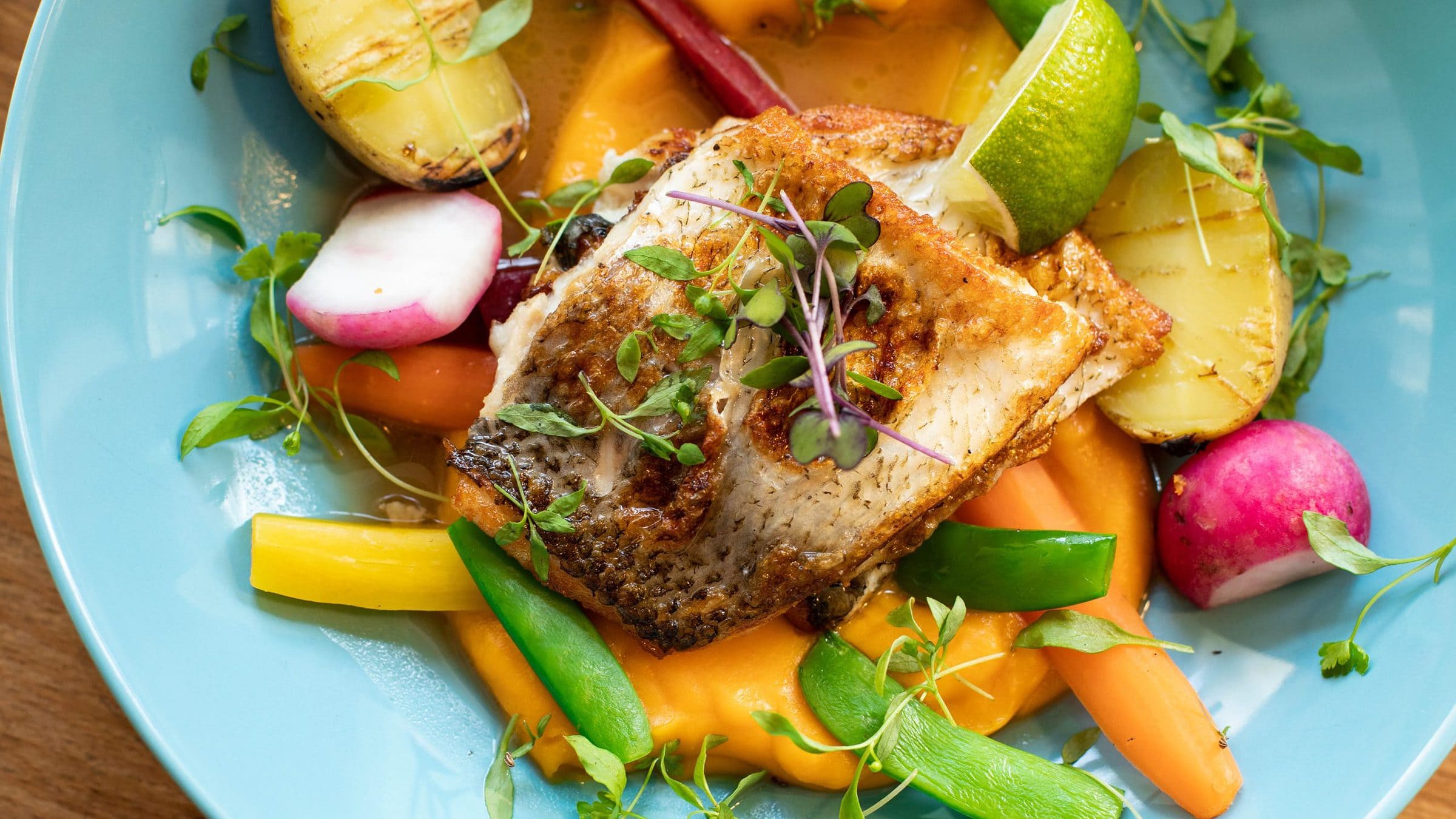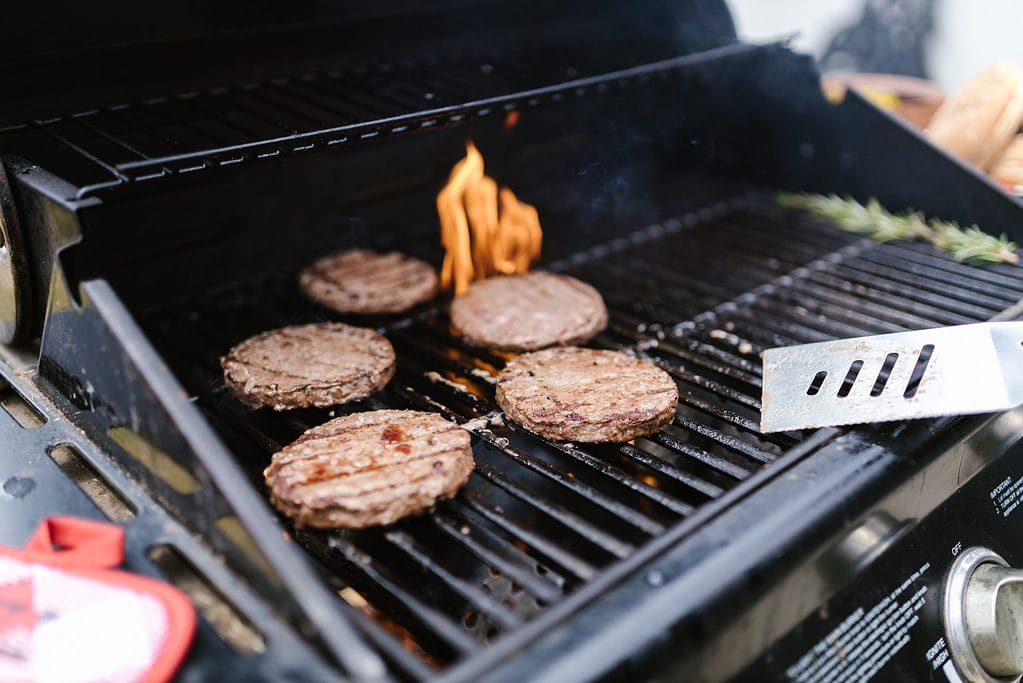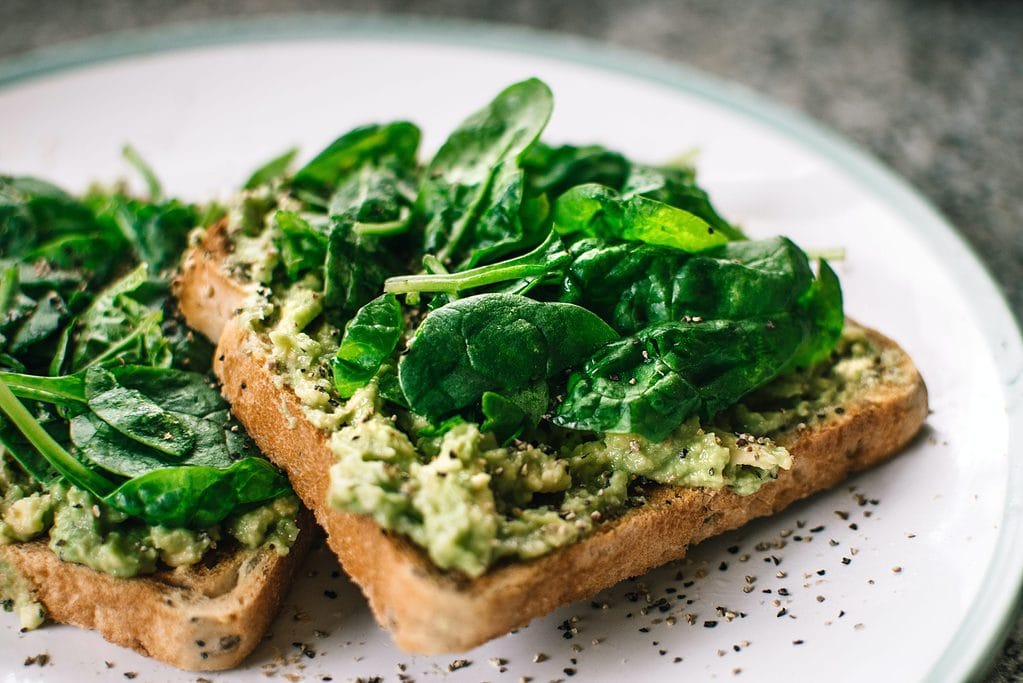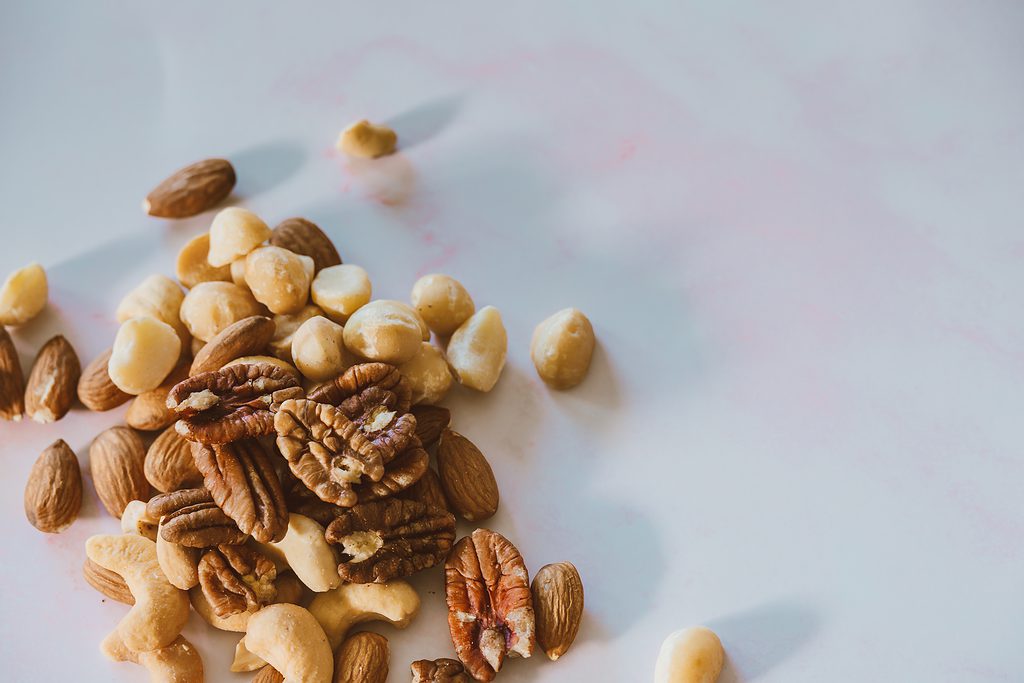12 Iron-Rich Foods To Give You An Energy Boost

Iron plays an important role in our health, from producing haemoglobin to transporting oxygen throughout the body and even fighting infections. But, iron deficiencies are a pretty common nutritional deficiency that is steadily on the rise in Australia.
Incorporating foods rich in iron into your diet is important for everyone, to maintain a healthy immune system. But, it’s especially important for women, vegetarians and vegans who might not get enough iron from plant-based foods.
So, if you’ve noticed you’re feeling especially tired, fatigued and low in energy, you might need to start incorporating more iron-rich foods into your diet. Not sure where to start? Keep reading for the top 12 iron-rich foods that will give you an energy boost in no time (with plenty of plant-based options included, too).
Why it’s important to eat foods rich in iron

Iron is an essential mineral that’s needed for various functions of the body.
One of iron’s most important roles is producing haemoglobin in our red blood cells, which are stored in the body as ferritin in the liver, muscle tissue and bone marrow. It’s also responsible for transporting oxygen from the lungs throughout the entire body.
When you’re not getting enough iron in your diet, your body can’t produce haemoglobin which then causes an iron deficiency (a form of anaemia). Essentially, an iron deficiency is a health condition where there’s not enough haemoglobin in the blood, leading to symptoms such as extreme tiredness and weakness.
While the body can store iron, it can’t actually produce it. The body can only get iron from food which is why it’s so important to eat foods that are rich in iron. Plus, women need to eat twice as many iron-rich foods as men as a way to replace the amount of blood lost during menstruation.
Aside from transporting oxygen around the body iron also plays some other important roles in the body, including:
- Myoglobin is a protein that helps store oxygen in the muscles. Myoglobin also contains iron and is responsible for the red colour of your muscles.
- Various enzymes in the body contain iron which is involved in energy production. Not getting enough iron can contribute to tiredness and weakness which is common in people with an iron deficiency.
- A healthy immune system partially relies on iron which can help the body fight infections. Not eating enough food rich in iron can impact your immune system which is you’re more likely to get infections when you’re iron deficient.
Signs and symptoms that you’re not getting enough iron
Understanding if you’re getting enough iron can be pretty hard to spot initially, because the signs and symptoms can be subtle and mild. But, as you’re consistently not getting enough iron from foods you might start to notice it more as your symptoms get worse over time.
Let’s take a look at some signs and symptoms you may not be getting enough iron through your diet:
- Extreme fatigue
- Weakness
- Pale skin
- Cold hands and feet
- Brittle nails
- Headaches, dizziness or lightheadedness
- Chest pain, fast heartbeat or shortness of breath
- Poor memory and concentration
- Getting infections
Why vegetarians and vegans struggle to get enough iron
There are two types of iron; heme and non-heme. Heme iron comes from animal products that are easier to absorb by the body. Non-heme iron is found in plant-based foods that aren’t as easy for the body to absorb.
The absorption of iron plays a key role in iron deficiencies amongst meat eaters and plant-based eaters alike. Different health conditions like coeliac disease and the types of food you eat contribute to how your body absorbs iron.
One study found that iron depletion was more common in vegetarians than non-vegetarian participants, especially among vegetarian women and iron depletion was also higher among vegans in comparison to vegetarians.
But, this doesn’t mean you shouldn’t follow a plant-based diet. Going vegetarian offers many health benefits. It just means you have to pay closer attention to your diet and make sure you’re eating plant-based foods rich in iron.
Animal-based iron-rich foods to incorporate into your diet
Meat eaters, this section is for you.
If you’re looking to boost your energy levels or you’re deficient and need to increase your iron intake, considering adding these high iron foods to your grocery list:
- Red meat: reach for beef, lamb, veal and pork
- Fish: such as salmon, tuna, sardines and snapper
- Poultry: opt for lean sources such as turkey or chicken
- Eggs
Plant-based iron-rich foods to incorporate into your diet

Steering clear of animal products? No worries.
If you’re following a plant-based diet you can still get non-haem iron into your diet with these iron-rich foods:
- Nuts
- Dried fruit
- Iron-fortified bread and breakfast cereals (meaning iron has been added)
- Legumes: think mixed beans, baked beans, lentils and chickpeas
- Dark leafy green vegetables: such as spinach, silver beet and broccoli
- Oats
- Tofu
- Wholemeal pasta and bread
Plus, if you’re eating plant-based or you need foods rich in iron for anemia, cooking iron-rich foods like vegetables can increase the amount of iron in vegetables to boost your iron absorption.
You can also boost your body’s absorption of iron by eating and drinking foods that are rich in vitamin C like oranges, other citrus fruits and fruit juices.
Healthy meals and snacks that are high in iron

We know it can be overwhelming trying to figure out what to make yourself for breakfast, lunch and dinner each day (especially, if you’re already tired all the time). So, we’ve done the hard work for you.
Here are some iron-rich meals and snacks that will boost your energy and you can easily find them in your local grocery store:
- Spinach omelette: grab eggs and leafy greens for a delicious breakfast.
- Porridge with fruit: opt for wholegrain oats and top with a handful of berries.
- Weetbix: look for fortified cereals to boost your iron intake at breakfast.
- Canned tuna and pasta salad: the combo of carbs and healthy fish make this a winning iron-rich meal.
- Roasted chickpea snacks: take a tin of chickpeas, drizzle in olive oil and paprika and roast in the oven until crispy.
- Tofu stirfry: load up on veggies for an extra dose of vitamins and nutrients.
- Steak or fish and potatoes: an easy, iron-rich midweek dinner.
- Lentil soup: perfect for cooking on a Sunday night to set you up with lunches for the week.
- Dark chocolate-covered almonds: a nourishing afternoon or post-dinner snack.
- Hummus with vegetables: an easy snack in a pinch.
You can even make a charcuterie board with fruits, nuts, meats and hummus that all have iron in them. Plus, it’s a great excuse to have some friends over and get creative.
Ultimately, iron is an important nutrient your body needs to function properly and help you feel your best. Whether you’re a vegetarian, vegan or you eat meat there are plenty of foods you can incorporate into your diet that will boost your iron and your energy levels.
Want to feel like your best, most energised self every day? Noom’s simple meal tracker can help make you more mindful of the food you’re eating, so you can learn what works best for you and your body. Plus, there’s hundreds of energy-boosting recipes that are delicious, quick and easy to prepare. Ready to see how Noom can work for you?

